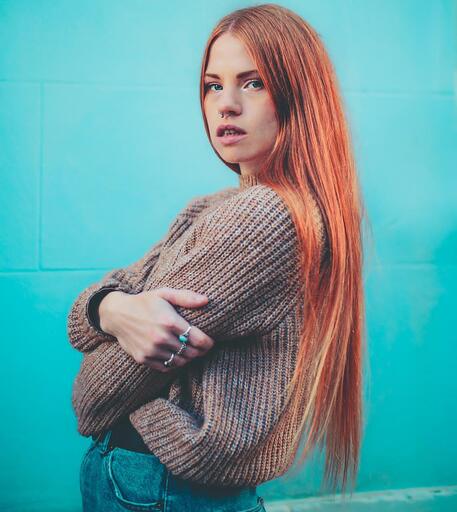Canon is team AI, as it encourages photographers to embrace the technology
Canon uses AI in its cameras to make the shooting process even easier, but it also encourages photographers to harness its photo editing powers

Canon is encouraging photographers to embrace AI with open arms, as it will enable them to spend more time on the creative aspect and less time editing, retouching and even shooting. AI is transforming the photography landscape like never before, with powerful software advancements and in-camera features that aid the image-taking process, so to be in fear of it is to be left behind.
Just a few years ago, professional photographers were spending more time on post-production editing than the actual photoshoot itself – myself included. After a shoot, I would spend hours in front of a computer screen meticulously perfecting every aspect of an image, from removing objects to painting in highlights and shadows, smoothing skin to perfecting the colors. Now a lot of these time-consuming processes can be achieved with a click of a button, thanks to AI.
The fusion of text-based prompts and artificial intelligence has resulted in features such as Adobe’s Generative Fill, which is now integrated into Photoshop. AI-powered editing tools excel in pre-processing tasks, significantly reducing the time and effort traditionally associated with perfecting a photograph.
AI doesn’t just aid in the post-processing, either. Modern mirrorless cameras are equipped with AI-powered features that enable even enthusiast photographers to produce professional-looking images. Whatever you're shooting, AI can enable you to capture the moment as you see it.
"We've all been there – experiencing an amazing sunset or a bright, perfectly rounded full moon – and the photo we snap doesn't do any justice," says Amine Djouahra of Canon Central and North Africa. "Whatever your level, the AI incorporated into many modern cameras has been a game-changer."
Canon’s intelligent autofocus with advanced subject tracking uses Deep Learning AF to analyze and predict optimal focus points so, whether you're shooting fast-paced sports events or vibrant street scenes, you can be sure your focus is pin-sharp at the crucial moments.
Many Canon cameras including the EOS R7, the R6 Mark II and the R10 can benefit from Canon's RAW image processing service. It's powered by neural technology and enables users to upload images and quickly process images.
Get the Digital Camera World Newsletter
The best camera deals, reviews, product advice, and unmissable photography news, direct to your inbox!
Deep Learning can also be used to raise image resolution by removing noise, sharpening objects in the distance and correcting images that are distorted by fog or haze. This again helps the photographer to produce the image they see in front of them, instead of having to employ post-processing techniques to bring out the correct colors and contrast.
Despite concerns about AI-generated images, it's crucial to acknowledge the incredible opportunities that AI presents to complement our photography. While AI can produce high-quality images, it lacks the distinctive perspective, creativity and emotional depth that human photographers bring to their work.
"It's essential to approach this technology with an open mind, appreciating its advantages while preserving the irreplaceable touch of human ingenuity in creative endeavors," says Djouahra.
"By striking a harmonious balance between AI and human contributions, we can revolutionize the field of photography and beyond, enriching our lives with innovative and captivating creations" – but only if people know how to harness its power.
Also check out the best Canon RF lenses as we round up our favorite primes, wide-angles, telephoto zooms and more.

Having studied Journalism and Public Relations at the University of the West of England Hannah developed a love for photography through a module on photojournalism. She specializes in Portrait, Fashion and lifestyle photography but has more recently branched out in the world of stylized product photography. Hannah spent three years working at Wex Photo Video as a Senior Sales Assistant, using her experience and knowledge of cameras to help people buy the equipment that is right for them. With eight years experience working with studio lighting, Hannah has run many successful workshops teaching people how to use different lighting setups.
